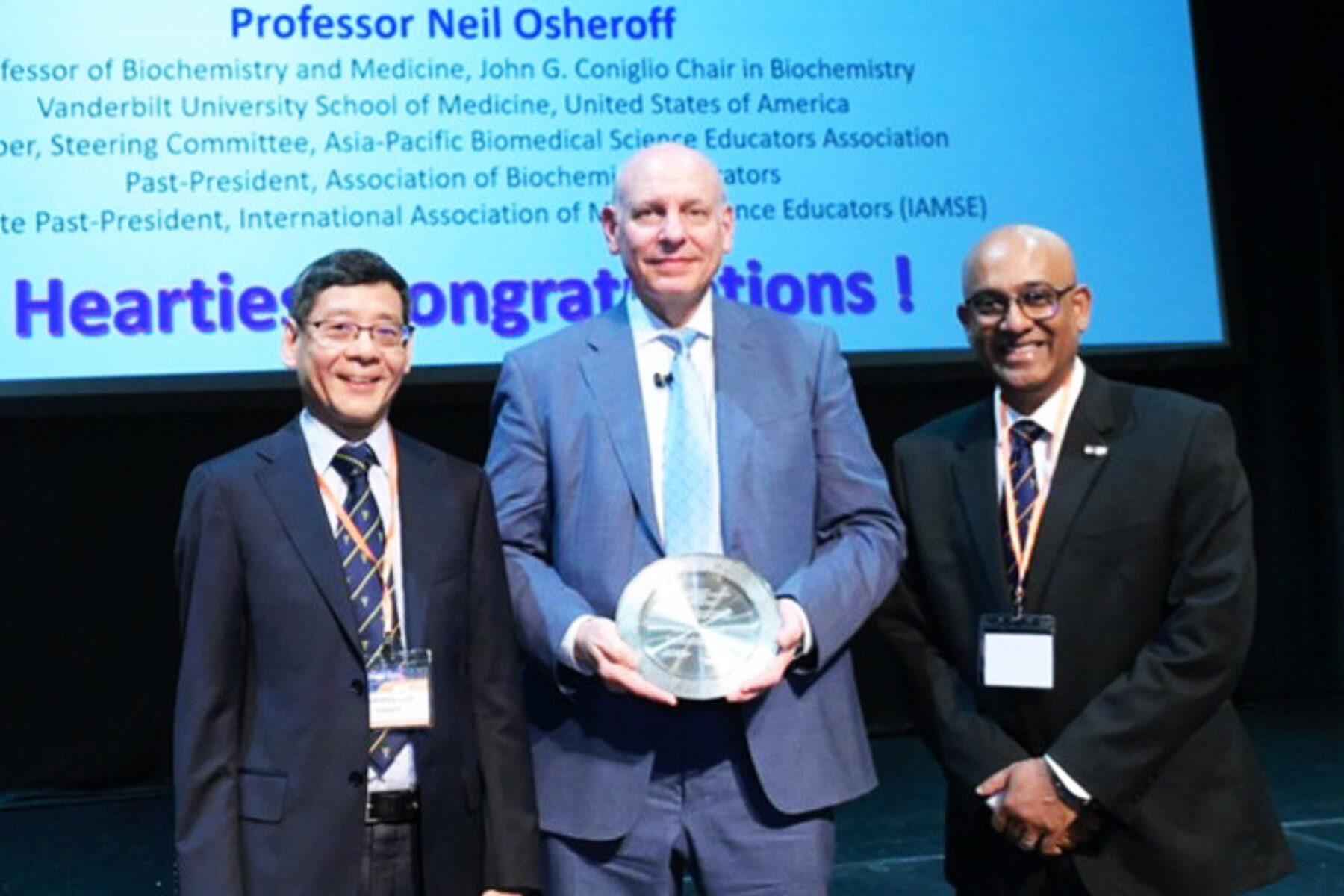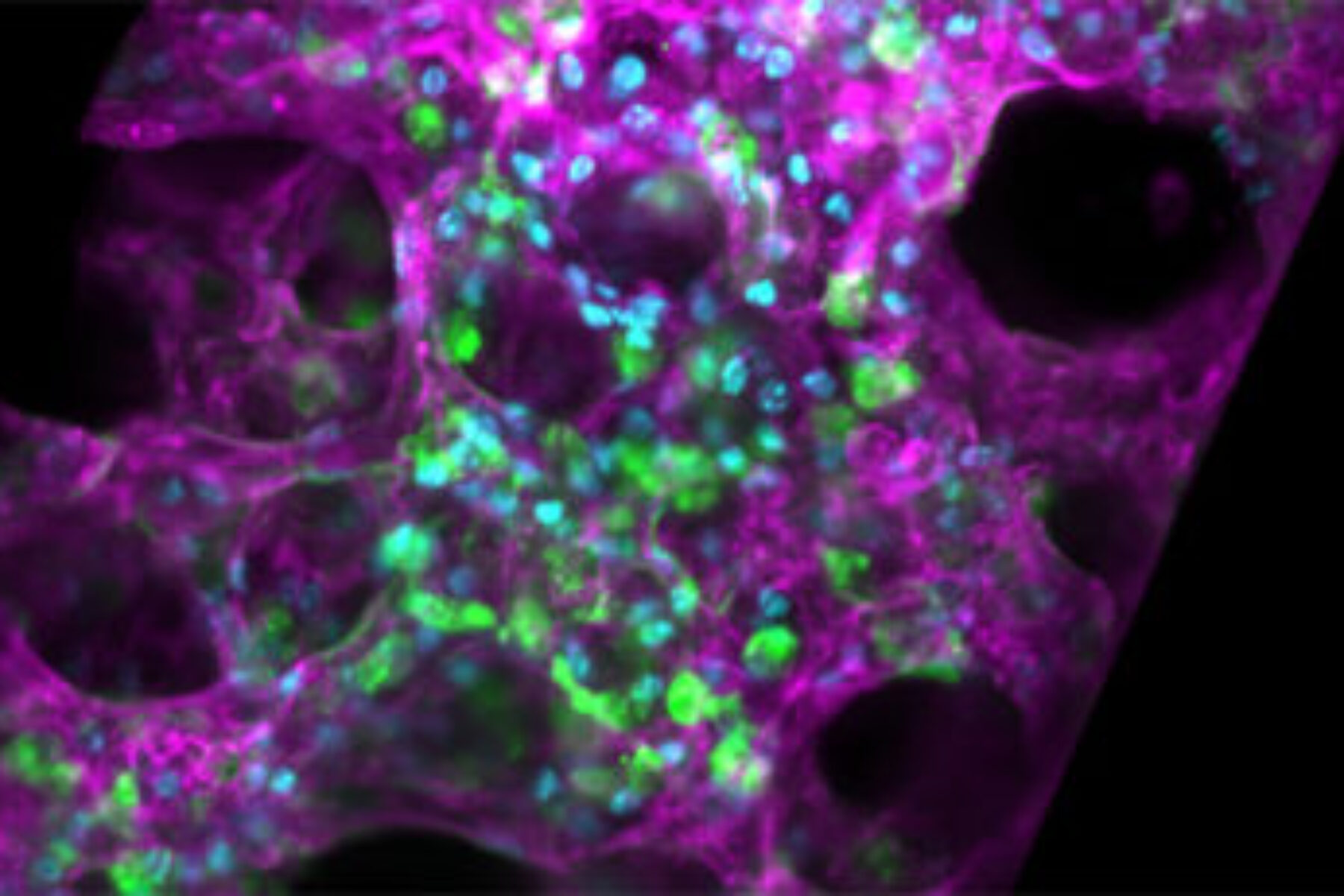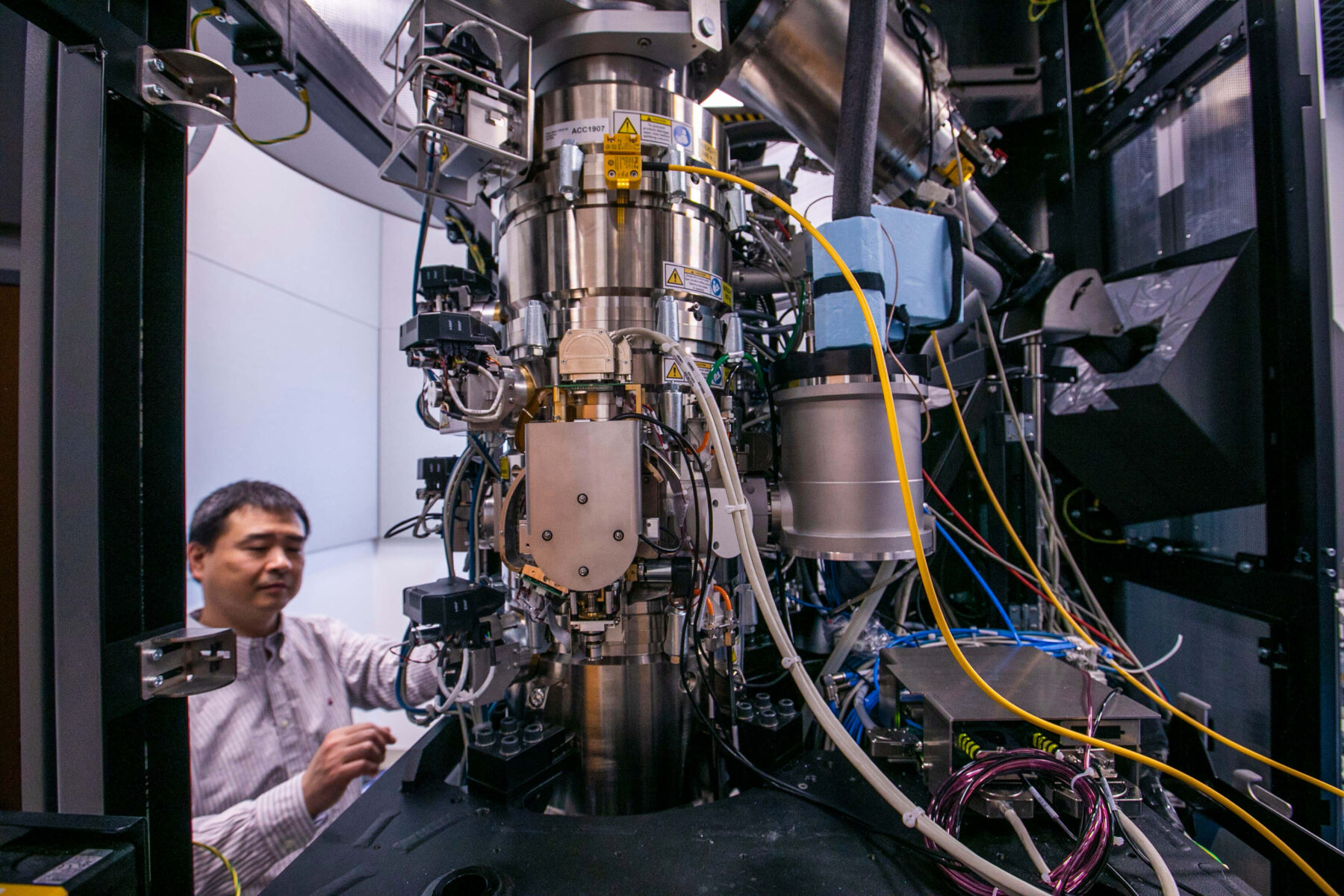Explore our community
Our four departments are leaders in their fields and pioneering biomedical research.

- Center for Applied Artificial Intelligence in Protein Dynamics
- Center for Structural Biology
- Mass Spectrometry Research Center
- Program in the Molecular Basis of Genetic Diseases
- Quantitative Systems Biology Center
- Vanderbilt Brain Institute
- Vanderbilt Center for Addiction Research
- Vanderbilt Center for Extracellular Vesicle Research
- Vanderbilt Center for Stem Cell Biology
- Vanderbilt Institute of Chemical Biology
- Warren Center for Neuroscience Drug Discovery
Our centers and institutes serve as specialized hubs of expertise, knowledge, and support and offer valuable resources, training, and consultation services to facilitate next-generation research and scientific discovery.

Basic Sciences investigators have access to a vast number of resource cores at both Vanderbilt University and Vanderbilt University Medical Center. These cores provide essential research infrastructure, expertise, and services to support faculty, staff, and students in conducting innovative and impactful scientific investigations across various disciplines.

150th Anniversary Issue: Vestigo, the Basic Sciences magazine
Vestigo, the Basic Sciences magazine
As Vanderbilt University celebrates its sesquicentennial - the 150th year anniversary of its founding - the School of Medicine Basic Sciences reviews its past, celebrates its current profusion of groundbreaking discoveries, and looks forward to the future!
This special issue celebrates the role that biomedical research has played in its history. Join us as we discuss the birth of our school, how basic science discoveries have led to new treatments, and more.
Special Lab-to-Table Event: Biotech Entrepreneurship: Stories & Strategies
Biotech Entrepreneurship: Stories & Strategies
One-third of biotech executives are women, a statistic that shows progress toward gender diversity in industry leadership. This trend, however, is juxtaposed against a stark reality: In the U.S., only 13 percent of venture capital funding goes to startups with a woman on the founding team. These figures reflect the persistent challenges faced by entrepreneurs, particularly women, in getting funding to bring their ideas to fruition.
In honor of Women’s History Month, the latest installment of the Vanderbilt University School of Medicine Basic Sciences’ Lab-to-Table Conversations explored the landscape of biotech entrepreneurship with an all-female panel.
Special Lab-to-Table Event: Science-conscious Films
Hollywood Reimagined with AI: Film Screening and Discussion
Artificial intelligence is changing the film industry in the digital age. From scriptwriting to pre- and post-production, AI is becoming a tool and source of inspiration for filmmakers and the stories they tell. Partnering with ArtLab and Grand Challenge Initiative, a special edition of Lab-to-Table held in-person at Sarratt Cinema premiered "On the Dying Grass," a short film written, directed, and produced by Vanderbilt undergraduate student filmmakers during their summer ArtLab internship.
Kendra Oliver, director and founder of ArtLab and assistant professor of pharmacology, moderated a discussion about science, self, AI and art at Vanderbilt and beyond.
Watch the performance by Ji Hye Jung, professor of percussion, with synchronized visualizations generated from the Tyska laboratory during the recent Quantum Potential Premiere
Faculty videos
Alyssa Hasty Full Interview
Alyssa Hasty Research Overview – Role of Macrophages in Obesity
Bryan Mills Nikon Center of Excellence Full Interview
Bryan Mills Nikon Center of Excellence Overview – Microscopy and Quantitative Image Analysis
Danny Winder Full Interview
Danny Winder Research Overview – Addiction Research
Erin Calipari Full Interview
Erin Calipari Research Overview – Addiction
Jeffrey Conn Full Interview
Jeffrey Conn Research Overview – Neurological and Psychiatric Disorders
Jens Meiler Full Interview
Jens Meiler Research Overview – Protein Structure and Elucidation